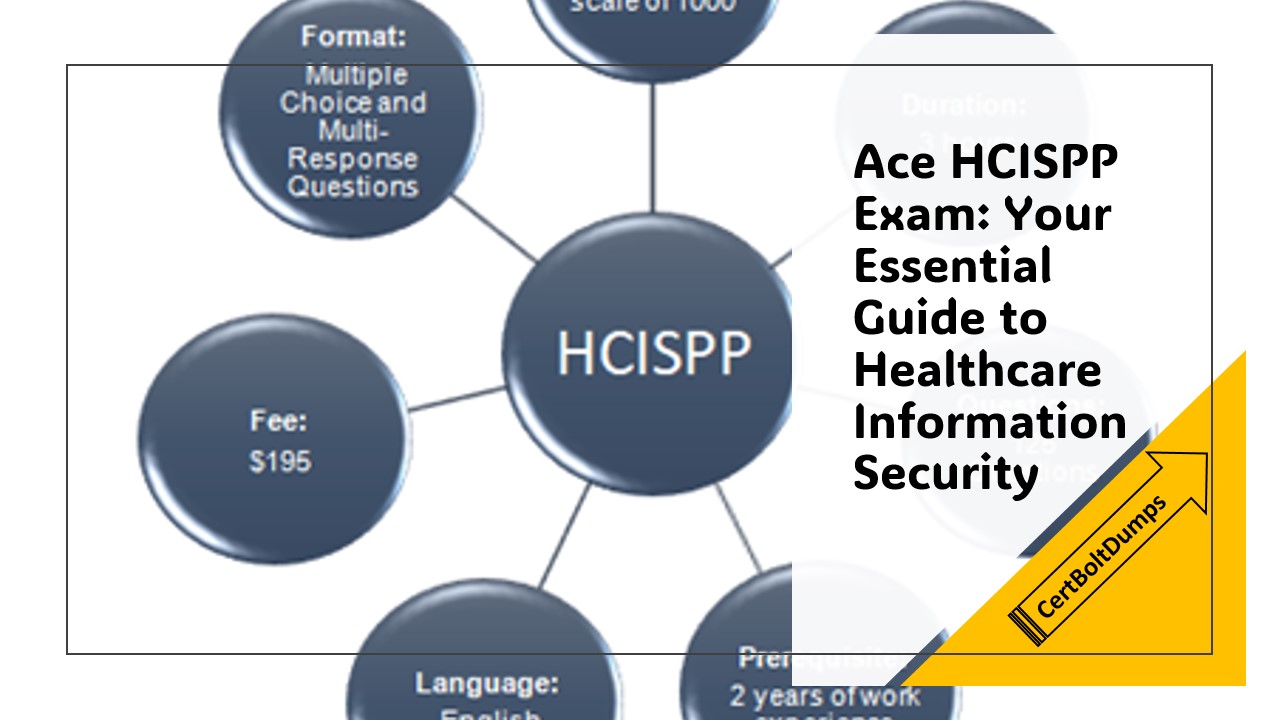The first domain, Healthcare Industry, covers topics such as healthcare regulations, standards, and policies. It also covers the roles and responsibilities of healthcare professionals, as well as the ethical considerations involved in healthcare information security and privacy.
This domain also covers the legal aspects of healthcare information security and privacy, including HIPAA and other applicable laws.
HCISPP Exams
The second domain, Risk Management, covers topics such as risk assessment, risk mitigation, and risk management strategies. It also covers the use of security controls, the evaluation of security controls, and the development of security policies and procedures.
The third domain, Information Governance and Compliance, covers topics such as information classification, access control, and audit and monitoring. It also covers the development and implementation of information security policies and procedures.
The fourth domain, Privacy and Security in Healthcare, covers topics such as patient privacy and security, patient data protection, and the use of encryption and authentication. It also covers the development and implementation of privacy and security policies and procedures.
Preparing for the HCISPP Exam
To prepare for the HCISPP Exam, it is important to understand the exam content and structure. The exam consists of 150 multiple-choice questions, and the time allotted for the exam is three hours. The exam is divided into five domains: Healthcare Industry, Privacy and Security in Healthcare, Information Governance and Risk Management, Information Risk Assessment, and Third-Party Risk Management.
To prepare for the exam, it is important to become familiar with the exam content and structure. The best way to do this is to review the HCISPP Exam Blueprint. The Exam Blueprint outlines the topics and objectives covered in the exam, as well as the weighting of each domain. It is important to understand the exam structure and the topics covered in each domain.
In addition to understanding the exam content and structure, it also important to develop a study plan. A study plan should include a timeline for studying, as well as a list of resources to use for studying. It is important to use a variety of resources, such as textbooks, online courses, practice exams, and study guides.
It is also important to practice for the exam. Taking practice exams is a great way to become familiar with the exam format.
Exploring the Domains of Healthcare Information Security
Healthcare information security is a broad field that encompasses many different domains. These domains include physical security, network security, data security, access control, and identity and access management. Each of these domains has its own set of challenges and considerations.
Physical security is the practice of protecting healthcare facilities and equipment from unauthorized access and damage. This includes the use of locks, alarms, and surveillance systems. It also includes the proper disposal of sensitive documents and equipment.

Network security involves the protection of healthcare networks from malicious attacks. This includes the use of firewalls, encryption, and other measures to protect against unauthorized access. It also includes the monitoring of network activity for suspicious behavior.
Data security is the practice of protecting healthcare data from unauthorized access and misuse. This includes the use of encryption, secure storage, and other measures to protect data from unauthorized access. It also includes the monitoring of data access for suspicious activity.
Access control is the practice of controlling who has access to healthcare data and systems. This includes the use of passwords, authentication protocols, and other measures to control access. It also includes the monitoring of access for suspicious activity.
Exam Strategies for Acing the HCISPP
The first step in acing the HCISPP exam is to understand the format and content of the exam.
The HCISPP exam consists of 125 multiple-choice questions that cover five domains: Healthcare Industry, Privacy and Security in Healthcare, Information Governance and Risk Management, Healthcare Information Technology, and Regulatory Environment.
It is important to familiarize yourself with the exam content and structure so you can focus your studying and practice on the areas you need to improve.
Once you have a good understanding of the exam content, the next step is to create a study plan. This should include a timeline for studying each domain, as well as a list of resources to use for studying. The ISC2 website provides a list of recommended resources, such as textbooks, online courses, and practice tests. It is also important to set aside time to practice taking the exam, so you can become familiar with the format and build your test-taking skills.
When studying for the HCISPP exam, it is important to focus on the key concepts. Make sure you understand the terminology.
Benefits of Passing the HCISPP Exam
1. Valuable Credential: Passing the HCISPP Exam is a great way to demonstrate your commitment to healthcare information security and privacy. It is a valuable credential that employers recognize and value. With this credential, you can show employers that you have the knowledge and skills necessary to protect patient data and ensure compliance with healthcare regulations.
2. Increased Job Opportunities: Passing the HCISPP Exam can open the door to new job opportunities. Many employers are looking for candidates with expertise in healthcare information security and privacy. With this credential, you can demonstrate your knowledge and skills in this area and make yourself a more desirable candidate.
3. Professional Development: Passing the HCISPP Exam can help you stay up to date on the latest healthcare information security and privacy trends and best practices. It can also help you develop your professional network and stay connected with other professionals in the field.
4. Increased Salary: Passing the HCISPP Exam can also lead to higher salaries. Employers are often willing to pay more for candidates with this credential, as they know they have the knowledge and skills necessary to protect patient data and ensure compliance with healthcare regulations.
Comments (0)